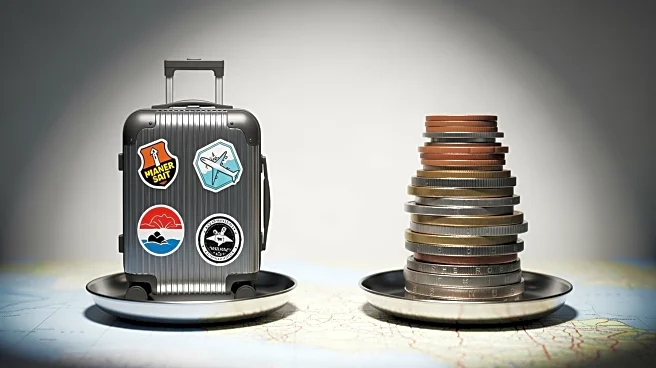What's Happening?
A recent report by Phocuswright highlights a shift in U.S. consumer travel behavior due to economic strains. Despite steady travel rates, consumers are becoming more cautious with their spending, prioritizing
value and cost-effectiveness. The report indicates that while the number of trips remains unchanged, average annual spending has declined. Travelers are considering alternatives such as road trips over air travel if costs rise, and younger travelers are increasingly using online travel agencies for price comparisons. The rise of artificial intelligence-powered search tools is influencing how travelers research and plan their trips, leading to a decline in general search usage. Indirect booking channels like OTAs are gaining popularity, reflecting a demand for value and comparison options.
Why It's Important?
This shift in travel behavior has significant implications for the travel industry, particularly in terms of how services are marketed and priced. As consumers become more deliberate in their spending, travel companies may need to adjust their strategies to cater to a more price-conscious audience. The increased use of online travel agencies for price comparisons suggests a growing demand for transparency and value in travel offerings. This trend could lead to increased competition among travel service providers, pushing them to innovate and offer more personalized experiences to attract cost-conscious travelers. The reliance on AI-powered tools for trip planning also indicates a shift towards more efficient and informed decision-making processes among consumers.









